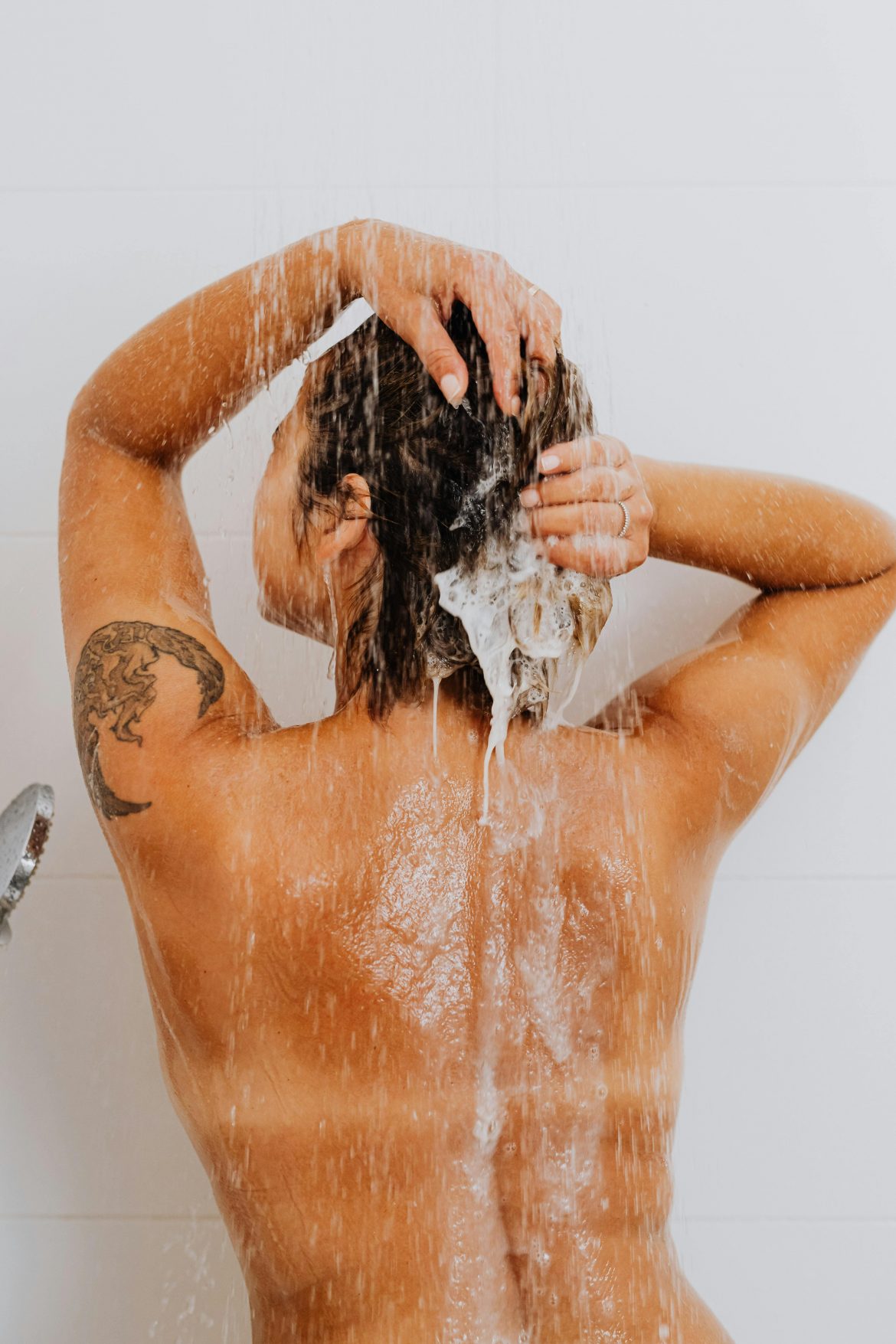We all know a good hair care routine starts with the right products, but have you ever thought about your shower water? Surprisingly, it might be playing a bigger role in your hair’s health than you realise. Whether your water is hard, soft, chlorinated, or even rich in minerals, each type affects your hair differently.
Let’s dive into what you need to know about how water impacts your locks—and more importantly, what you can do about it.
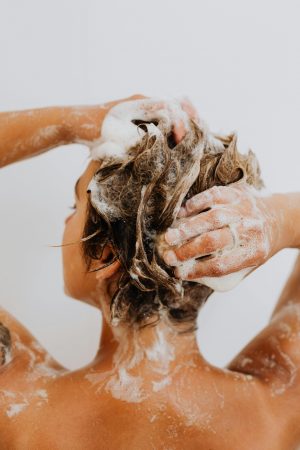
Pexels
The hard truth about hard water
Hard water is common, but it’s tough on your hair. This type of water contains higher levels of minerals like calcium and magnesium, which, while great in your diet, can be pretty unforgiving when it builds up on your strands.
How it affects your hair:
- Weighed down hair: Mineral deposits coat your hair shaft, making it feel heavy, dull, and lifeless.
- Blocks moisture: This buildup also blocks moisture from getting into the hair, leaving it dry and brittle.
- Scalp drama: Dandruff or itchy scalp? Hard water could be clogging your hair follicles and worsening these issues.
- Faded colour: If you dye your hair, hard water can fast-track colour fading, leaving your fresh salon look feeling a little… meh.
The truth about soft water
Soft water, which contains fewer minerals, gives you a rich lather with minimal shampoo. But is it always a good thing?
Pros:
- Softer, shinier hair: Without the weight of minerals, your hair will feel softer and look shinier after each wash.
- Less buildup: Say goodbye to the dryness, frizz, and tangles caused by mineral buildup.
Cons:
- Too soft?: If you have fine hair, soft water might leave it too soft, making it limp and flat.
- Product overload: Soft water makes products lather more, which can tempt you to overuse shampoo, leaving your scalp stripped of natural oils.
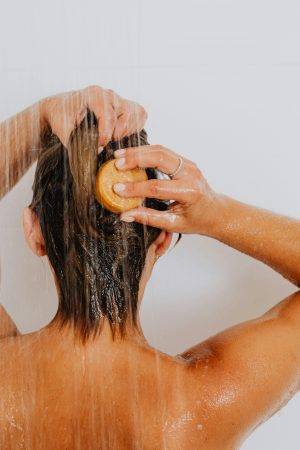
Pexels
Chlorine: the silent hair wrecker
Chlorine is a sneaky culprit, stripping your hair of its natural oils and leaving it dry. If you’ve ever noticed how dry your hair feels after swimming, daily showers with chlorinated water can have a similar effect.
Chlorine’s effect on your hair:
- Dryness and frizz: Chlorine sucks the moisture from your strands, leaving them more prone to frizz and breakage.
- Colour shift: Chlorine doesn’t just fade your colour—it can also cause it to change. Blond hair can turn greenish, and dark shades can dull out faster.
What about pH levels?
Your water’s pH balance is another key factor. If the water you’re using has a high pH (alkaline), it raises the cuticle of your hair, making it more prone to tangling and frizz. On the flip side, slightly acidic water, which is closer to your hair’s natural pH, smooths the cuticle, leaving your hair shinier and more manageable.
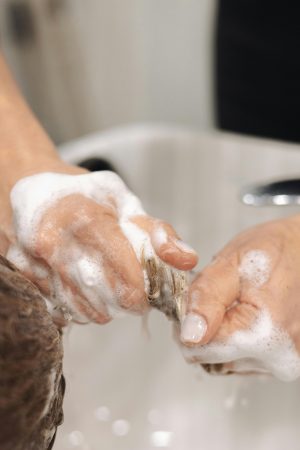
Pexels
How to know what type of water you have
If you’re wondering what type of water you have—whether it’s hard, soft, or chlorinated—there are a few simple ways to figure it out.
- Check for mineral buildup
- Signs of hard water include white, chalky deposits (limescale) around your taps, showerheads, or even in your kettle.
- Soft water leaves no visible buildup and makes it easier to lather soap or shampoo.
- Soap test
- Hard water makes it harder for soap or shampoo to lather. If you find you need a lot of product to get a good lather, you might have hard water. Soft water, on the other hand, produces a rich lather with less product.
- Home water test kit
- A more accurate method is using a home water testing kit. These kits measure the mineral content of your water, indicating whether it’s hard or soft. They’re available online or at hardware stores.
- Water provider
- Check with your local municipality or water provider. Many water utilities offer water quality reports, which usually include the hardness level, pH, and any added chemicals like chlorine.
- Pool test strips
- If you have test strips for your pool, you can use them to check your shower water’s hardness and chlorine levels. They’re a quick and easy tool to get basic info.
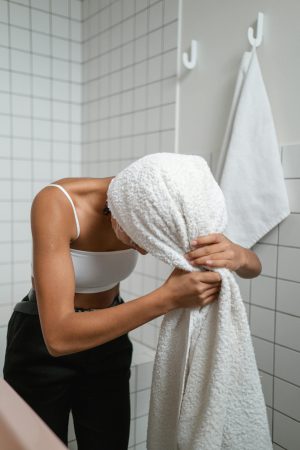
Pexels
What you can do about it
If your shower water is messing with your hair, don’t despair—there are ways to work around it.
- Install a shower filter: Filters remove minerals and chlorine, giving your hair a fighting chance at staying soft and healthy.
- Clarifying shampoos: These help lift mineral buildup off your hair, though you’ll need to follow up with a hydrating conditioner to restore moisture.
- Bottled or filtered water rinse: If you’ve got particularly hard water, giving your hair a final rinse with filtered water could make a noticeable difference.
- DIY acidic rinses: Apple cider vinegar or diluted lemon juice can help balance your hair’s pH and remove mineral buildup. Bonus: they also boost shine!
- Cool down your water temperature: Hot water may feel amazing, but it can strip your hair of natural oils. Go for lukewarm water and finish with a cool rinse to seal in moisture and smooth the cuticle.
ALSO SEE:
Featured Image: Pexels

